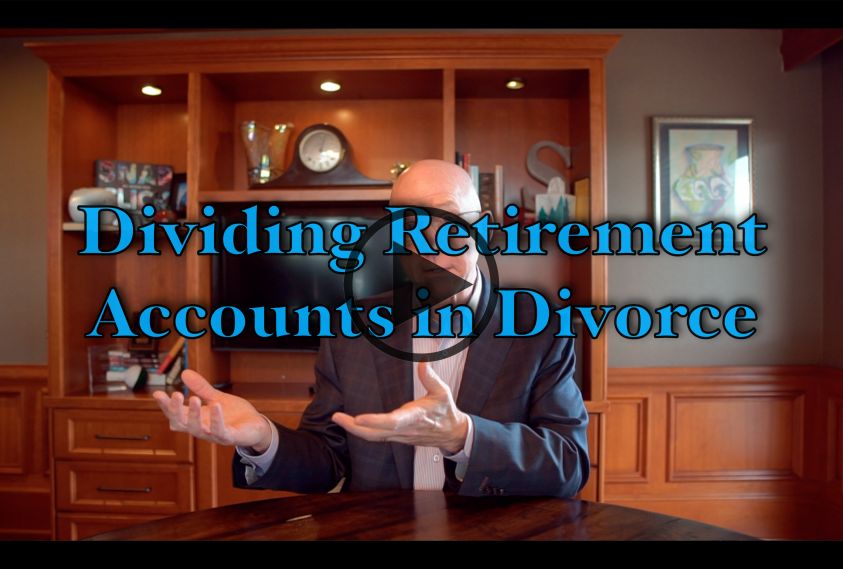Dividing Retirement Accounts in Divorce

A very common asset that gets divided in a divorce are retirement accounts, so let's just take one or two minutes and just talk about what they are and how you might consider dividing them.
A common thing to have in divorce are assets that are in retirement accounts. It might be an IRA account. It might be an employer plan, like a 401(k) account. Or if you're with a nonprofit, they call those 403(b) accounts. But you know what I'm talking about. They're retirement accounts where you may have put money in on your own, or you may have put money in through your paycheck, and your employer matched those. So the first thing you wanna do is figure out what kind of accounts you have.
If you are... If you have a defined contribution account, that is where you decide how much you contribute into the plan. So you might say, "I contribute $100 from each paycheck," or, "I contribute 3% or 4% of my pay." Your employer might add money to that and so on, and so that's how a defined contribution plan builds up value. So those accounts are pretty easy to value because you just look at the statement. You know, you go to the website, and you log in, and you say, "What was it on the end of last month," and it'll tell you what the value is. So, nice and simple.
You may have a defined benefit plan. A defined benefit plan, sometimes they call them pensions, they define the benefit that you receive when you retire. They don't define the amount that goes in. So those are very nice to have. So it might say, "At age 65, you get $1,000 a month," or, "At some retirement date, you get a percent of your last salary," something like that. Defined benefit plans. Those, you cannot determine what they're worth by looking at a statement. There's no statement that'll tell you that. You have to hire a valuation expert, and they will go through and do all the math and do the present value and do all that stuff, and they might say, "That pension that gives you $1,000 a month when you retire, that's worth $376,000" or something. So then, you know the amount that that's worth, and then you can start to talk about how that gets divided in the divorce.
So defined contribution plans,you look it up on a statement. Defined benefit plans, you pay somebody to valuate it, and then you can decide how you want to divide it.
Like most assets in divorce, there's a tax code section that says nobody has to pay tax when you rearrange those assets. So you take the house, and I'll take the retirement account, or you take the car, and they take the motorcycle. You know, whatever. Those things don't trigger tax. Now, with a retirement account, if you take money out, you will be taxed. If you simply take a retirement account and divide it into two retirement accounts, or two IRAs, which are a form of a retirement account, that's a non-taxable event. That doesn't result in any tax.
Just a quick planning idea, if you have a qualified plan, like a 401(k), a 403(b), a pension plan, a qualified plan, there is a way to take money out of those. You pay the income tax, but you don't pay a penalty if you're under age 59 1/2. So there's a little bit of a planning idea there.
So a common thing to divide. The thing is, first, figure out what kind of plan you have. Figure out what the value is. And then decide how you want to rearrange that and whose column those will go in as you move forward. So if we can help with any of that, we're happy to help, and hope this has been a little bit of... Given you a little bit of something to think about as you look at your retirement accounts.
Disclosure
This presentation is not an offer or a solicitation to buy or sell securities. The information contained in this presentation has been compiled from third-party sources and is believed to be reliable; however, its accuracy is not guaranteed and should not be relied upon in any way whatsoever. This presentation may not be construed as investment, tax or legal advice and does not give investment recommendations. Any opinion included in this report constitutes our judgment as of the date of this report and is subject to change without notice.
Additional information, including management fees and expenses, is provided on our Form ADV Part 2 available upon request or at the SEC’s Investment Adviser Public Disclosure website, www.adviserinfo.sec.gov.
